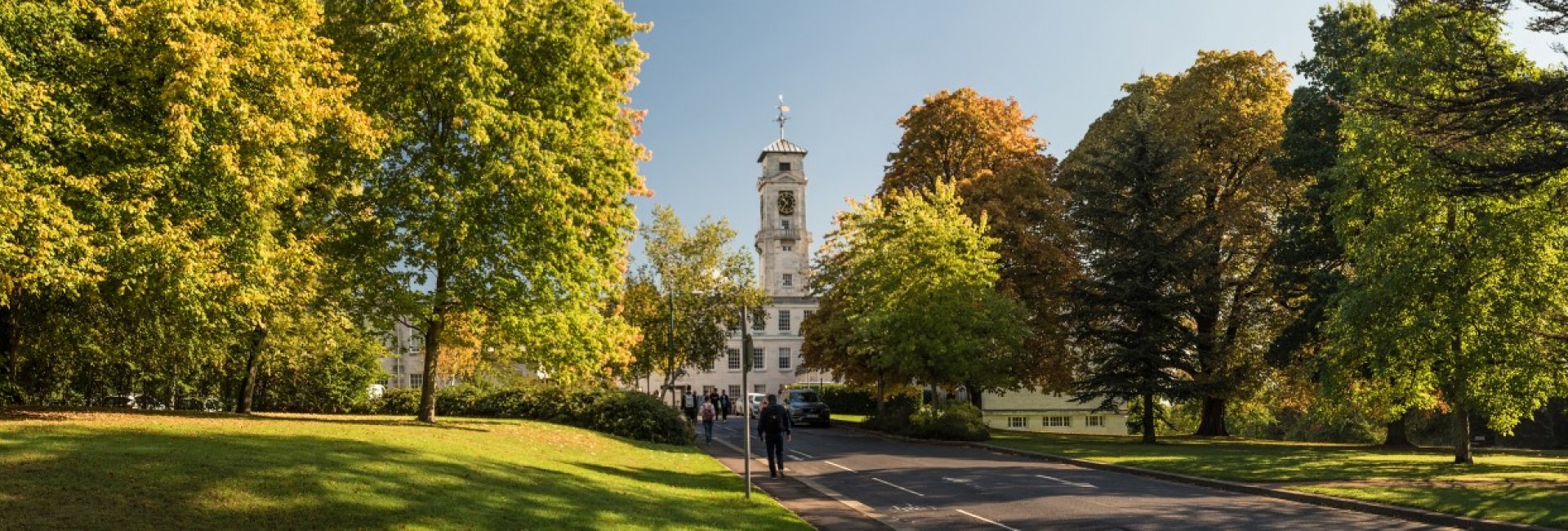University of Nottingham
University Park
Nottingham
NG7 2RD
Visit our website Visit our course page
Course contact details
Undergraduate admissions
Phone:+44 (0) 115 951 5559

Communication defines us as human beings. This degree gives you a chance to think critically about media and communication in your own society and in a global context.
Drawing on a range of approaches (such as sociology, communication theory, politics and cultural studies), you'll explore:
technology - what we use and how it shapes communication
content - what we say and how other people understand it
impact - how individuals, groups and countries engage with different forms of media and communication
industry – how media and communication work as an economic sector
history – how past knowledge and experience inform current media and culture
politics - how media empowers individuals and groups and helps change society
ethics - the informed choices we all make in our communications and daily life
sustainability – how the industry can help tackle global challenges such as climate change and women's rights
You'll use a range of approaches including sociology, communication theory, politics, and cultural studies. This wide range of approaches means you'll develop a comprehensive skillset that can be applied to many careers, whether media-related or not.
Language learning is an integral part of the course. You can learn a language from beginner level or build on existing abilities. You'll also use your language skills and cultural knowledge to shape your coursework.
There are also opportunities to study abroad and learn media, communication and culture internationally.
Combine with another subject
You may also combine it with Spanish, Portuguese, German, French and American Studies in our joint honours programme, or study alongside multiple disciplines in our Liberal Arts BA.
Foundation Year
This course is also available with a Foundation Year - aimed at developing potential and diversifying our recruitment.
In year one, you are provided with a firm foundation in the themes and approaches of cultural studies and media studies with a focus on the role of new media technologies in a changing public sphere, as well as receiving instruction in the academic skills needed to produce university-level work.
You will also begin the study of your chosen language with our Language Centre. There are nine languages to choose from, available for beginners and for continuers.
Year two builds on the first year by providing specific research training in the area of culture, film and media which enables you to focus on a potential dissertation topic. More specific modules allow you to explore issues around public relations, political communication and global media.
In addition, you will continue to develop your language abilities through intermediate language study of the same language taken in year one.
In year three, you will choose from a number of advanced modules ranging from activist uses of digital media to media coverage of conflict and disaster. These research-led modules also support you in your independent dissertation project, undertaken under the close supervision of a relevant member of staff.
Final year students may further build their chosen language skills and gain further awareness of the cultures in which it can be used.
Placement and volunteering opportunities are available in the School of Cultures, Languages and Area Studies, as well as via the Nottingham Advantage Award. You can also spend time overseas through the University of Nottingham Study Abroad programme.

Learn what it's like to study at University of Nottingham. From key stats to campus highlights, open days, and more - find everything you need to know here.
The following entry points are available for this course:
European Baccalaureate - 75% overall.
We consider applicants solely on the basis of their merits, abilities and potential – we use exam grades to prioritise applicants but look at a range of factors and aim to give everyone an equal opportunity to show their achievements.
We understand that background and personal circumstances can have an impact on academic performance at school or college. Applicants who are eligible under our contextual admissions policies may be considered for a reduced contextual offer.
This section shows the range of grades students were previously accepted with - learn more. It is designed to support your research but does not guarantee whether you will or won't get a place. Admissions teams consider various factors, including interviews, subject requirements, and entrance tests. Check all course entry requirements for eligibility.
Students aged 17/18 who applied to this course were offered a place.
See how students with your grades have been accepted onto this course in the past.
Operated by the Office for Students
Employment after 15 months (Most common jobs)
Go onto work and study
The number of student respondents and response rates can be important in interpreting the data – it is important to note your experience may be different from theirs. This data will be based on the subject area rather than the specific course. Read more about this data on the Discover Uni website.
| Location | Fee | Year |
|---|---|---|
| Republic of Ireland | £9250* | Year 1 |
| EU | £21500* | Year 1 |
| England | £9250* | Year 1 |
| Northern Ireland | £9250* | Year 1 |
| Scotland | £9250* | Year 1 |
| Wales | £9250* | Year 1 |
| Channel Islands | £9250* | Year 1 |
| International | £21500* | Year 1 |
* This is a provisional fee and subject to change.
Tuition fee status depends on a number of criteria and varies according to where in the UK you will study. For further guidance on the criteria for home or overseas tuition fees, please refer to the UKCISA website.
No additional fees or cost information has been supplied for this course, please contact the provider directly.
University Park
Nottingham
NG7 2RD
Visit our website Visit our course page
Phone:+44 (0) 115 951 5559